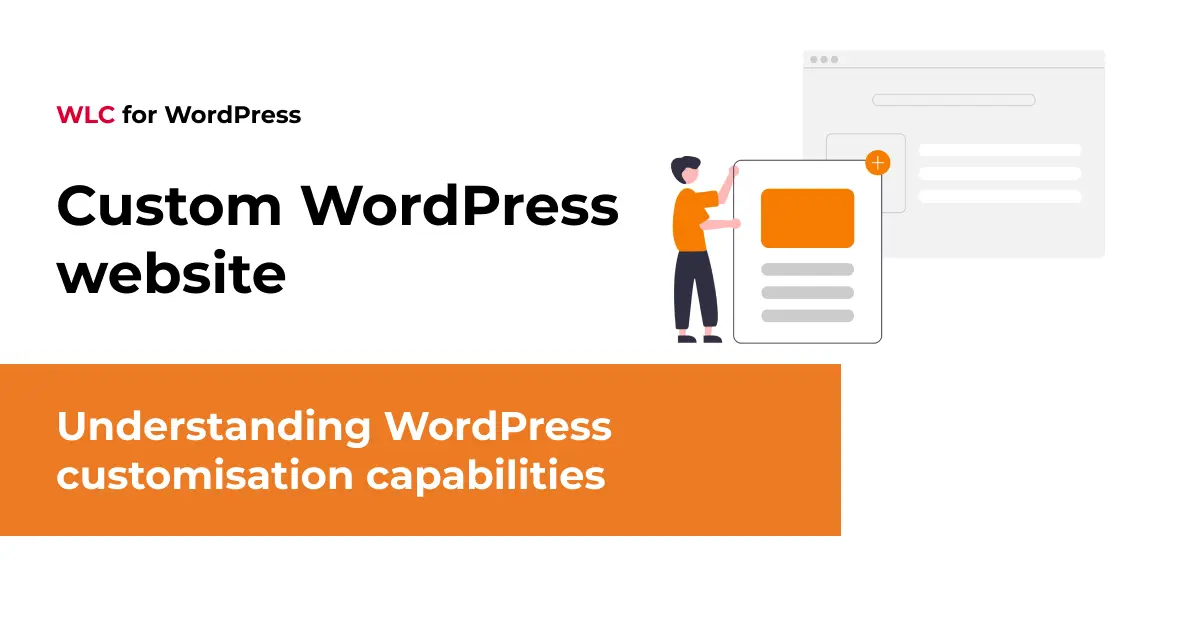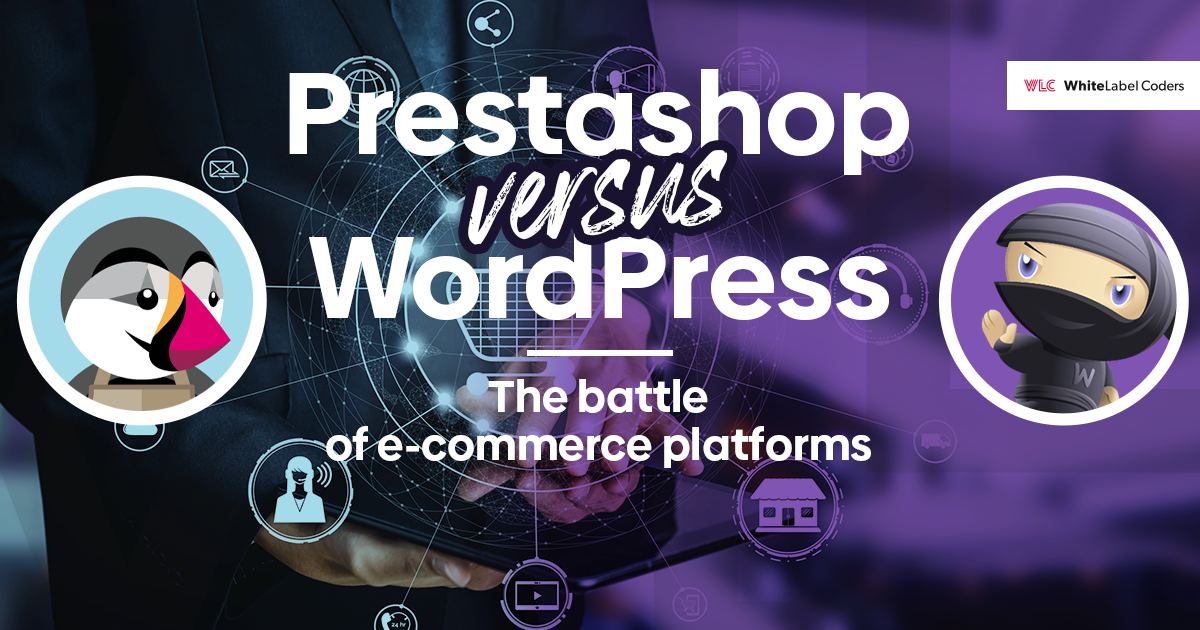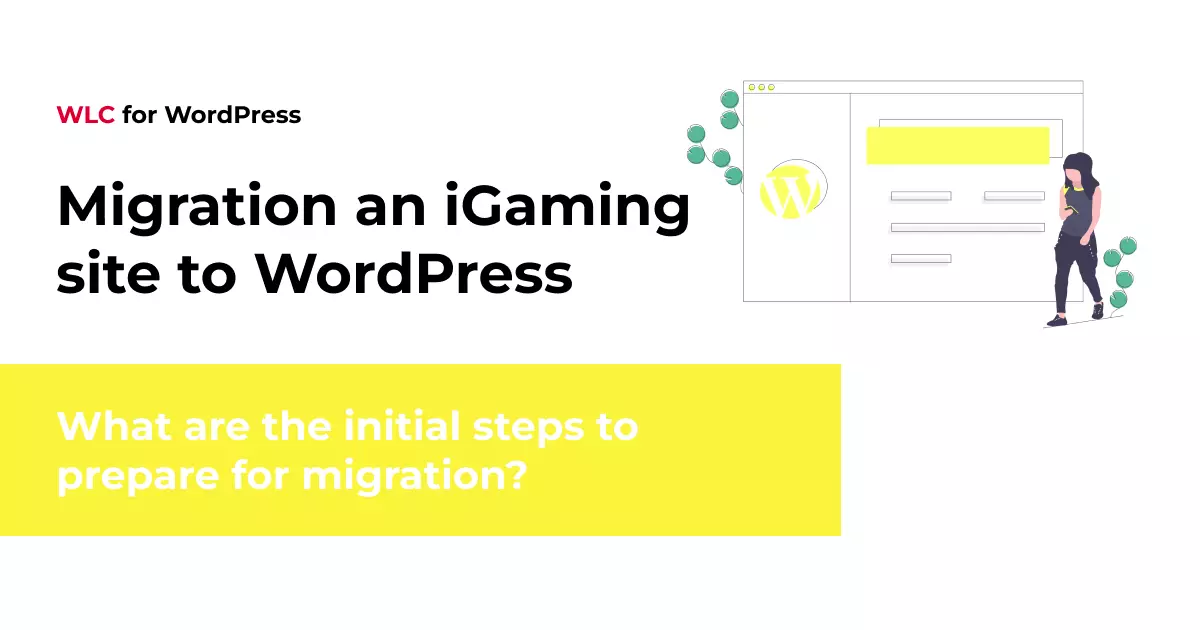Category: WordPress
Building a custom WordPress website: from flexible design to enterprise-grade solutions

Yes, WordPress is exceptionally customisable and stands as one of the most flexible content management systems available. Its open-source architecture, extensive plugin ecosystem, and developer-friendly codebase enable unlimited customisation possibilities, from simple theme modifications to complex enterprise solutions. This flexibility explains why WordPress powers over 40% of websites globally. At White Label Coders, we leverage WordPress’s open architecture to deliver enterprise-grade, fully customised solutions for clients in industries ranging from e-commerce to iGaming. Our approach combines technical excellence with a focus on long-term maintainability and business growth. How you can build a custom WordPress website?
Understanding WordPress customisation capabilities – custom WordPress website
WordPress operates as a highly customisable content management system that adapts to virtually any website requirement. Its open-source nature means developers worldwide contribute to its continuous improvement, creating an ecosystem where customisation knows no bounds.
The platform offers multiple levels of customisation. You might start with basic theme modifications using the WordPress Customiser, then progress to child themes for more control. Advanced users can dive into custom post types, hooks, and filters for sophisticated functionality.
What makes WordPress particularly appealing is its scalability. A simple blog can evolve into a complex e-commerce platform or membership site without changing the underlying system. This adaptability has made WordPress the foundation for everything from personal blogs to enterprise-level applications.
What makes WordPress so customisable compared to other platforms?
WordPress’s open-source architecture sets it apart from proprietary platforms by providing complete access to its codebase. Unlike closed systems, you’re never restricted by vendor limitations or locked into specific functionality.
The extensive plugin ecosystem offers over 60,000 plugins, each adding specific functionality. This means you can transform your site’s capabilities without writing code. Need an online shop? Install WooCommerce. Want advanced SEO features? Yoast has you covered.
WordPress’s hook and filter system provides developers with precise control over functionality. These allow you to modify behaviour at specific points without altering core files. This approach ensures your customisations survive updates whilst maintaining system stability.
The theme system separates design from content beautifully. You can completely change your site’s appearance without affecting your content, or create entirely custom designs that reflect your brand perfectly.
Our team often extends WordPress beyond its typical use cases by integrating it with ERP, CRM, and marketing automation platforms, ensuring that content management is tightly connected to business operations.
How can you customise WordPress themes and appearance?
WordPress offers multiple approaches to theme customisation, from beginner-friendly options to advanced development techniques. The WordPress Customiser provides a live preview environment where you can modify colours, fonts, layouts, and widgets without touching code.
Child themes represent the safest approach for theme modifications. They inherit functionality from parent themes whilst allowing you to make changes that won’t disappear during updates. This method protects your customisations whilst maintaining theme security updates.
For deeper visual control, custom CSS enables precise styling adjustments. The Additional CSS section in the Customiser provides a safe space to add your styles, with syntax highlighting and error checking to prevent issues.
Page builders like Elementor and Gutenberg blocks have revolutionised theme customisation. These tools enable drag-and-drop design creation, making complex layouts accessible to non-developers whilst still offering code-level control for professionals.
Professional theme development creates completely unique brand experiences. Custom themes built from scratch ensure your website stands out whilst optimising for your specific requirements and performance needs.
What types of functionality can you add with WordPress plugins?
WordPress plugins transform your website’s capabilities dramatically. The plugin ecosystem covers virtually every conceivable functionality, from simple contact forms to complex business management systems.
E-commerce functionality through WooCommerce turns WordPress into a powerful online shop. This plugin handles everything from product catalogues to payment processing, inventory management, and shipping calculations. Its extensibility means you can customise every aspect of the shopping experience.
SEO tools like Yoast and RankMath optimise your content for search engines. These plugins analyse your content, suggest improvements, and handle technical SEO elements like sitemaps and meta tags automatically.
Security plugins protect your website from threats. Solutions like Wordfence and Sucuri provide firewalls, malware scanning, and brute force protection, ensuring your customised site remains secure.
Performance optimisation plugins improve loading speeds through caching, image compression, and code minification. These tools ensure your customisations don’t compromise user experience.
Custom functionality plugins address specific business needs. Whether you need membership systems, booking calendars, or learning management systems, plugins exist for most requirements. When they don’t, custom plugin development fills the gap.
How do you create custom WordPress website for complex business requirements?
WordPress custom development addresses sophisticated business needs that standard themes and plugins cannot fulfil. This approach involves creating bespoke functionality tailored to specific workflows and requirements.
Custom post types extend WordPress beyond traditional posts and pages. You might create product catalogues, team member profiles, or project portfolios with unique fields and display options. These custom content types integrate seamlessly with WordPress’s admin interface.
Advanced Custom Fields (ACF) adds sophisticated data collection capabilities. These fields enable complex content structures whilst maintaining user-friendly editing interfaces. Content managers can input structured data without understanding the underlying complexity.
API integrations connect WordPress to external systems like CRMs, ERPs, or third-party services. These connections enable data synchronisation, automated workflows, and enhanced functionality that spans multiple platforms.
Multi-site configurations allow managing multiple websites from a single WordPress installation. This approach suits organisations with multiple brands, locations, or departments whilst maintaining centralised control and shared resources.
Enterprise-level customisations address scalability, security, and performance requirements. These solutions often involve custom databases, advanced caching strategies, and optimised code structures that handle high traffic volumes efficiently.
What are the limitations of WordPress customisation?
Despite its flexibility, WordPress customisation has practical limitations you should consider. Heavy customisation can impact performance if not implemented properly. Multiple plugins, complex themes, and inefficient code can slow loading times significantly.
Maintenance requirements increase with customisation complexity. Custom code needs regular updates, security patches, and compatibility testing. This ongoing responsibility requires technical expertise or professional support.
Security implications multiply with extensive customisation. Each plugin and custom modification potentially introduces vulnerabilities. Proper security practices become crucial as your site’s complexity grows.
Hosting requirements often escalate with sophisticated customisations. Basic shared hosting might struggle with complex sites, necessitating more powerful hosting solutions that increase operational costs.
Sometimes custom solutions outside WordPress prove more appropriate. Highly specialised applications or systems requiring specific architectures might benefit from purpose-built solutions rather than WordPress adaptations.
Key takeaways about custom WordPress website
WordPress offers exceptional customisation capabilities that can transform simple websites into sophisticated digital platforms. Its open-source nature, extensive ecosystem, and developer-friendly architecture provide virtually unlimited possibilities for customisation.
The key lies in choosing the right approach for your needs. Simple modifications work well with themes and plugins, whilst complex requirements benefit from professional custom development. Understanding these options helps you make informed decisions about your website’s evolution.
Professional development becomes essential for complex projects. Experienced developers ensure customisations are secure, performant, and maintainable whilst leveraging WordPress’s full potential effectively.
Businesses can leverage WordPress’s flexibility for growth by starting simple and scaling up. The platform’s adaptability means your website can evolve alongside your business requirements without requiring complete rebuilds.
Whether you need a custom WordPress website or comprehensive WordPress custom development, the platform’s customisation potential ensures your digital presence can meet any challenge whilst remaining manageable and cost-effective.
If you’re looking for a development partner who can transform WordPress into a high-performance, business-critical platform, we bring the technical depth, process maturity, and proven track record to deliver results. Contact us.






